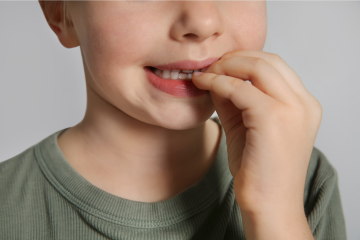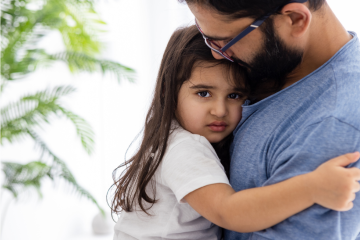Tips to help children manage their anxiety

Unfortunately, there is a growing number of children experiencing anxiety disorders. Besides the typical causes of anxiety in children (genetics, injury, irrational fears, novelty, overprotection, neglect, violence, etc.), the Covid-19 pandemic has disrupted family and school routines, causing significant stress among the younger generation. But don't panic; there are numerous resources available to help children better understand their emotions, cultivate a zen attitude, and find inner peace.
Step 1 – Assist your child in acquiring skills to cope with fears

Initiate a discussion with them when they are calm, focusing on strategies to address fears and worries as they arise. Encourage them to:
- Practice deep breathing and muscle relaxation techniques.
- Employ positive self-talk, such as shifting from "I can't do this" to "I can try this."
- Visualize a safe haven, like their bedroom or a beloved outdoor spot.
- Ease into confronting fears gradually. Consider exposing them slowly to feared objects or activities.
- Acknowledge and reward acts of bravery; the aim is to manage fears rather than avoid them.
Don't say: "Don't worry, it'll never happen." Children aged four to eight may worry about ghosts, monsters, or animals. Older children are more likely to fear being harmed by real but rare events, such as murder, terrorism, or nuclear war. Regardless of your child's age group, don't dismiss their fears.
Step 2 – Lifestyle habits at their best

A well-rested, well-fed child with a stable schedule and healthy, balanced lifestyle habits may, over time, show fewer signs of anxiety. Anxiety tends to increase during periods of stress or when feeling extremely tired. Therefore, establish a stable routine quickly. Ensure there is enough time for rest and incorporate a balance of calm and active activities into your routine. Also, be attentive to signs. You may need to temporarily rearrange the schedule to accommodate a greater need for rest in some children.
Step 3 – Identifying what the child is feeling

An anxious child experiences many emotions that they often struggle to name. They may say they have a stomach ache, feel sick, or just don't feel well, but they struggle to name their emotions. When you observe that the child is grappling with various emotions, take the time to name the emotions observed. The more you label these emotions, the more you will help the child do it themselves.
Step 4 – Building self-esteem

Your support plays a crucial role in everyday life. Being there for your young one after a trial; reminding them that you love them unconditionally; spending time with them; encouraging them to live in the present moment; trusting them; reminding them that it's normal to make mistakes – all these actions matter. When a situation induces anxiety in a child or teenager, focusing on their strengths, praising their progress, or breaking down the steps of a goal with them can help foster more positive thoughts on their part.
Step 5 – Seek help when needed

Depending on its intensity, anxiety can lead to issues in children or adolescents. This may manifest, for example, in sleep disturbances and/or difficulties with eating, relating to peers, or carrying out daily activities. If your young one is experiencing distress, if their level of anxiety is hindering their daily functioning, or if their condition is affecting family life, you should consult a doctor, school counselor, or health and social services professional. This individual can assess your child's needs and support you in managing their anxiety.
You can also take your children to the activities we suggest on our event page!
Don't forget to follow us on Facebook and Instagram to discover tips and content !
